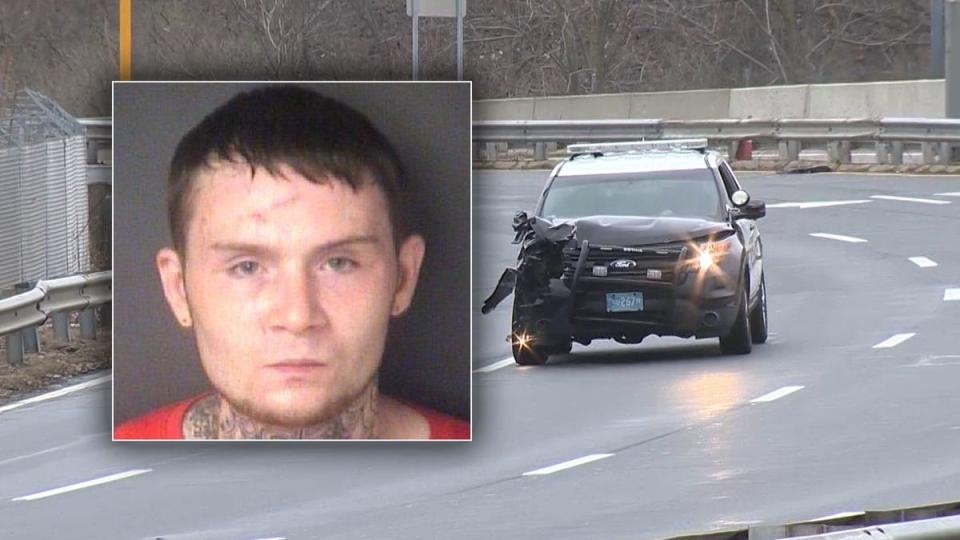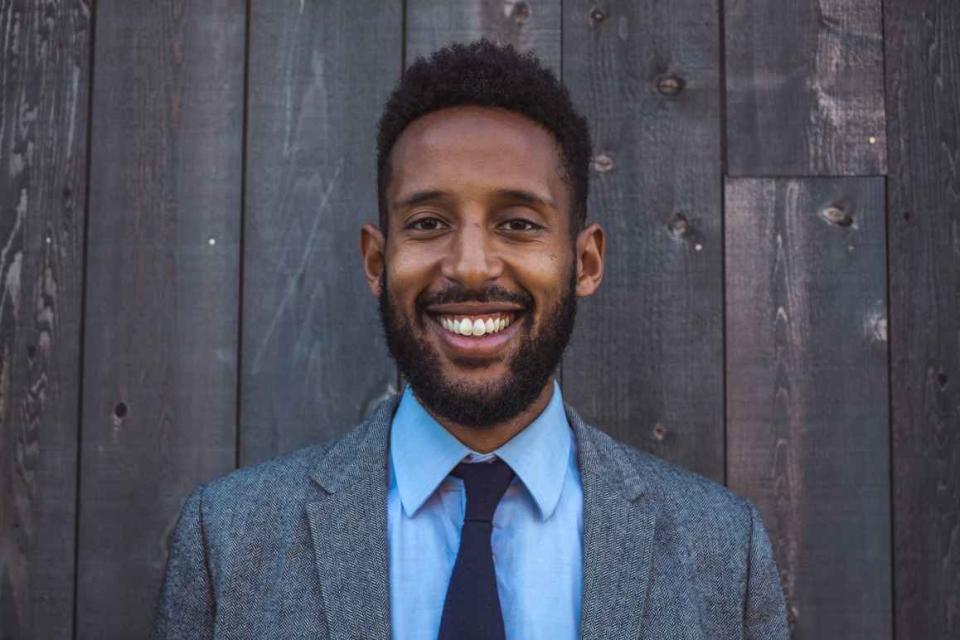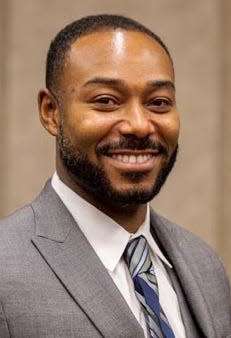Officials keep saying police shootings are justified. Experts point to needed reform.
Police in Maine have shot people 175 times since 1990. The AG’s office has said police were justified every time.
“That’s an incredible batting average,” said Thom Harnett, a former assistant attorney general who spent 27 years in the Maine attorney general's office.
Harnett, now retired and serving as a Maine state representative, is one of many advocating for change in the state and beyond as the spotlight on police use of force intensifies.
On Wednesday, Norfolk County District Attorney Michael Morrissey found that the three Braintree police officers who shot and killed a Brockton man in a firefight in June were justified in their actions.
In August, Morrissey cleared a state trooper in the fatal Quincy shooting of a robbery suspect. Officers involved in a 2017 Braintree shooting were cleared, as were the officers who stun-gunned a man to death in Cohasset in 2019 after he attacked a girl he met online.

The murder of George Floyd by Minneapolis police officer Derek Chauvin in May 2020, among other cases across the country in recent years, have demonstrated officers can be inaccurate in their initial accounts after someone dies in their custody.
DA: Fatal police shooting near Braintree apartment was justified
Related: Dead rats, death threats, destroyed careers. How law enforcement punishes its whistleblowers
The USA TODAY Network consulted several national legal and law enforcement experts, each of whom said follow-up interviews are standard practice in all other criminal investigations. They said their absence or inconsistent use in Maine’s deadly force investigations should prompt all states – not just Maine – to enact new measures to ensure investigators aren't favoring law enforcement.
“Most states have a similar situation to Maine’s where (they’ve), from a criminal perspective, almost never had a conviction,” said Justin Hansford, a Howard University law professor and executive director of the Thurgood Marshall Civil Rights Center.
What happens in Massachusetts?
If someone dies or if there is a high probability someone will die, Massachusetts state law mandates police departments contact the district attorney's office to investigate. If the injury is not life threatening, however – as happened when police shot a man in the shoulder outside of the Kingston Collection – the decision of how to investigate is left up to individual departments.
When police officers shoot, beat, shock, choke or otherwise nonfatally hurt someone, there is no requirement that police in Massachusetts contact an outside investigator, or even investigate the use of force themselves. Some departments have policies to call in the district attorney's office to make a determination, but others have no such policy or investigate internally.
While it is common in Massachusetts for officers to be cleared when they kill or injure someone, it is not always the case.
Patriot Ledger report: State leaves the decision to investigate serious use of force up to police departments
The Suffolk County District Attorney's Office is prosecuting State Police Trooper Matthew Sheehan for shooting a man as he rode an all-terrain vehicle in Roxbury. Sheehan is charged with assault and battery with a dangerous weapon and assault with a dangerous weapon.
Prosecutors said Sheehan fired two rounds. His case is set for a Jan. 24, 2022, trial.
Police misconduct: Cape Verdean man sues trooper who shot him as he rode an ATV
A former Brockton police officer was indicted by a Plymouth County grand jury in May for allegedly misleading a police investigation and filing a false police report, related to a man who fatally overdosed in police custody in 2020.
A harsh look at reality
Logic would dictate Maine’s outcome is a statistical impossibility, argues Michael Kebede, policy counsel for the American Civil Liberties Union of Maine.
“It’s very shocking for the attorney general not to have found any law enforcement officer guilty of unlawful behavior after they’ve shot and killed someone in the entire history of the state of Maine,” said Kebede. “Even a broken clock is right twice a day.”

Maine's record on police shootings has been well publicized over the past decade, prompting various reform efforts.
Despite the changes, however, the state continues to clear police officers of criminal wrongdoing each time they shoot someone. Maine families impacted by police shootings also told the USA TODAY Network that new reforms haven’t yielded the transparency for which they are desperate.

Police violence‘enforced white supremacy’ during 1960s protests. Similar tactics are still used today.
Bangor attorney Hunter Tzovarras said those outcomes show a key shortcoming of the AG's investigations has seemingly gone overlooked, despite all of the public attention – that the AG's office typically only interviews the officers who use deadly force at the beginning of the investigation, even if it later finds evidence that contradicts the officer’s account.

“In all the cases I’ve seen the AG do, there’s never been a follow-up interview,” said Tzovarras, who has represented families in roughly a dozen Maine deadly force cases over the past decade. “There’s maybe a tendency, either implicitly or even intentionally, to take the officer’s version at face value and not look for evidence that would contradict it.”
Jeff Evangelos, a state representative who has filed various bills seeking reforms, agrees. Based on his review of every police shooting on record in Maine, Evangelos said he believes there is an "inherent, systemic bias" in the way the AG's office investigates officers.
"People (think), ‘Oh, it’s Maine, it’s idyllic, it’s beautiful, it’s peaceful,' " he said. "No, it looks that way, but if you peel the veneer off here, it’s still Stephen King… (Y)ou don’t get to 175-0 unless there is something very, very wrong."

Maine's police shooting investigations have prompted questions for years
The push for change isn’t new. The Bangor Daily News, Portland Press Herald and other news outlets have long questioned why the AG's office has never found a police shooting to be unjustified since the office began investigating police use-of-force incidents in 1990. (As of November, determinations were still pending in 19 of the 175 investigations the AG has opened since 1990.)
News outlets have also questioned why national data shows Maine has the highest rate of fatal police shootings in New England. Maine has recorded 22 police shootings per million residents over the past six years, while the more densely populated and more significantly policed Massachusetts recorded seven, according to a database maintained by the Washington Post.
More gun control means fewer shootings
Massachusetts has one of the strictest set of gun control laws in the state, with licenses issued by local police departments. A 2017 paper in the American Journal of Public Health found that strict gun control laws are associated with a reduced number of fatal police shootings.
The Giffords Law Center ranked Massachusetts as an A- for its gun control laws, docking it for a lack of microstamping requirements, bulk firearm purchase restrictions and a waiting period. Only two states received higher grades – California and New Jersey. Neighboring Rhode Island received a B+, New York an A-, Connecticut an A-, Vermont a C- and New Hampshire an F.
Fatal encounters database: Search a database of fatal police encounters in Norfolk and Plymouth counties
The Giffords Law Center gave Maine, the state with the most per-capita deaths by police shootings, an F rating, and stated the state has a "lack of basic gun safety laws." Since 2015, anyone can carry a concealed handgun in public, without a permit or background check.
Maine's attempts at police shooting reforms
The news stories and intense public advocacy have prompted state task forces and legislative changes in recent years.
A 2019 bill created a new deadly force review panel to review police shootings after the AG finishes investigating. The review panel has since sided with the AG each and every time.
A new law took effect in October that mandates the AG to issue a justification ruling within six months of an incident, instead of the years it previously could take. Maine families told the USA TODAY Network they have received little or no new information or contact from the AG's office since the new investigative deadline took effect.
Accountability hampered by undercounting police shootings
More than half of police killings in the U.S. are unreported or misreported in government data, University of Washington researchers found in a study published in the British medical journal The Lancet in September. The study included one of the most comprehensive looks to date at the disproportionate impact police violence has on Black people in America.
STUDY: More than half of police killings in the US are unreported in government data
If shootings are underreported nationally, and if review panels such as Maine's rely heavily on AG reports that fail to critically analyze police narratives, true accountability isn't possible, argued Andy Horwitz, director of Rhode Island's Roger Williams University School of Law's Criminal Defense Clinic.

"Is it possible that in reality all (these) scenarios were scenarios where the police conduct was justified?" said Horwitz. “It’s possible, but it’s highly unlikely and I think what that is telling you is the system is broken and the investigations are not sincere… A prosecutorial entity will tend to assume credibility on the part of a police officer and they will often tend to assume the opposite when dealing with a civilian, and of course that bias is exacerbated tremendously when the civilian is a person of color.”
Patriot Ledger reporter Wheeler Cowperthwaite contributed to this report.
This article originally appeared on USA TODAY NETWORK: Experts say key reform needed in local police shooting investigations

